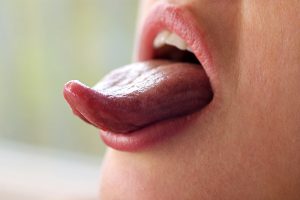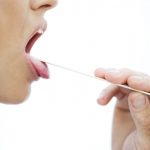 The appearance of a yellow tongue can be quite alarming to most and can signal a real medical concern. For others, a yellow tongue is temporary and will recover on its own, but it’s always important to figure out the cause of yellow tongue to ensure complications don’t arise.
The appearance of a yellow tongue can be quite alarming to most and can signal a real medical concern. For others, a yellow tongue is temporary and will recover on its own, but it’s always important to figure out the cause of yellow tongue to ensure complications don’t arise.
Yellow tongue can happen at any age and is quite common in women who are pregnant as a result of hormonal changes. But just for safety you should still see a doctor to ensure it’s nothing serious.
Advertisement
Here are the common reasons why a person may develop yellow tongue and some home remedies you can try in order to fix the condition.
Causes of yellow tongue:
Changes that occur to the tongue can reveal a lot about your overall health, so here are some common causes of a yellow tongue and what they mean to your health.
Black hairy or furry tongue or yellow furry tongue:
This is caused by dead skin and food buildup, and occurs commonly when the papillae become enlarged, swollen, or rough. When this buildup is paired with bacteria or yeast, it can cause the tongue to look yellow or black and hairy. Other signs of yellow furry tongue are bad breath, metallic taste, tickling or itching sensation, and a hairy appearance.
Antibiotic use:
The use of some antibiotics can cause yellow tongue due to an imbalance of microbes, which causes bacteria or yeast to thrive.
Excess growth of bacteria in the mouth:
When bacteria thrive on the tongue it becomes yellow. This condition is related to black hairy tongue.
Oral care products:
Some oral care products like mouthwashes can make the tongue appear yellow or orange. Mouthwashes containing oxidizing agents are the biggest culprit of this.
Jaundice:
A rarer occurrence, a yellow tongue can be a sign of jaundice, which points to a liver problem. The eyes and skin will appear yellow as well in jaundice.
UTIs:
A thick yellow coating – especially at the back of the tongue – could be an early warning sign of a urinary tract infection (UTI). But the same yellow coating towards the front is a sign of an upper respiratory infection.
Piercing, tooth extraction, or tonsillectomy:
A yellow tongue may follow a piercing, tooth extraction, or tonsillectomy as a result of papillae inflammation. It’s important that you follow proper oral care after these procedures to reduce the risk of infection.
Post-nasal drainage:
Post-nasal drainage may cause a yellow or even white tongue, which can also cause bad breath. Excessive mucus accumulates at the back of the nose and throat, and is commonly caused by allergies, acid reflux, or swallowing disorders.
Scarlet fever:
Scarlet fever can cause bumps on the tongue along with yellow or white coating.
Other causes of yellow-coated tongue:
Geographic tongue, dehydration, dry mouth, fever, acid reflux, mouth breathing, excessive tobacco smoking, medications, tongue irritations caused by hot beverages, poor oral hygiene, soft foods that don’t scrub off the tongue, and foods or candies with yellow dye.
 Yellow tongue signs and symptoms
Yellow tongue signs and symptoms
Yellow tongue may appear on its own or as a symptom of another condition. Some common symptoms associated with yellow tongue include bad breath, burning sensation due to acid, and – in case of jaundice – yellow skin and eyes.
Yellow tongue and its association with other diseases
As mentioned, yellow tongue could be a warning sign of another disease, such as:
Cancer:
Yellow buildup, coating, or film on the tongue could sometimes signal cancer, but pay attention to other symptoms as well as this is quite rare.
Sore throat and strep throat:
The bacteria that cause strep throat and sore throat can also cause yellow tongue. Accompanying symptoms include fever, painful swallowing, and swollen lymph nodes.
Mononucleosis (mono):
This viral infection known as the kissing disease as it is transmitted through the sharing of saliva. Accompanying symptoms include fatigue, fever, skin rash, headache, swollen lymph nodes, and sore throat.
Yellow under-tongue:
Common causes of a yellow under-tongue include biliary colic, alcoholic hepatitis, hepatitis A and B, mononucleosis, viral hepatitis, gallbladder disease, gallstones, and Epstein-Barr virus.
HIV/STD:
Yellow tongue is a rare symptom of HIV and AIDS, but it can sometimes reveal a compromised immune system. Yellow tongue could also be a sign of oral thrush – yeast infection of the mouth.
Related: Tongue color can reveal your health problems
Home remedies and treatment for yellow tongue
Advertisement
 Here are some home remedies and treatments you can utilize if you have a yellow tongue.
Here are some home remedies and treatments you can utilize if you have a yellow tongue.
- Gargle a solution of water and hydrogen peroxide – 5 parts water to one part hydrogen peroxide – to kill bacteria.
- Increase your intake of fiber to improve digestion and, in turn, improve gastrointestinal health, which can reduce yellow tongue.
- Limit alcohol and stop smoking.
- Limit intake of oily and starchy foods.
- Eat more fermented foods and probiotics.
- Maintain proper oral hygiene with brushing, flossing, and mouthwash.
- Don’t brush your tongue with the toothbrush bristles as that can cause irritation. Instead, use a tongue scraper specifically designed for the job.
- Use an alcohol-free mouthwash as it is less irritating to the tongue.
- Stay well hydrated throughout the day
When to see a doctor for yellow tongue
If your tongue remains yellow after a week’s time, go in to see your doctor or dentist to check what is going on. Or if you begin to notice accompanying symptoms along with the presence of your yellow tongue, that is also a good indication that you need medical attention as something serious is going on.
